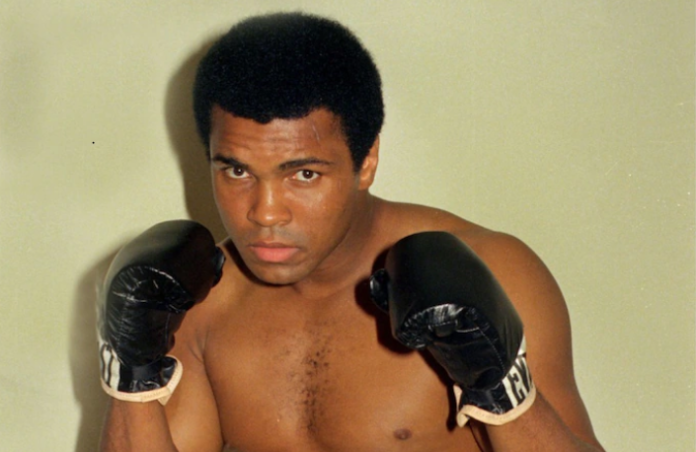
How Muhammad Ali stood for PEACE and won his greatest fight outside the ring
Date:

Share post:
THE BACKDROP
The Vietnam War was at its peak, American soldiers were dying in huge numbers, protesters were burning down draft cards and there was an exodus of objectors fleeing to Canada. Muhammad Ali reached the Armed Forces Induction Center, Houston a little before 8 a.m. on April 28, 1967. Ali had no plans of flying to Canada but he didn’t have plans to be inducted into the Army as well.
“My conscience won’t let me shoot my brother, or some darker people, or some poor hungry people in the mud for big powerful America,” he had made his stance clear two years back. “And shoot them for what? They never called me nigger, they never lynched me, they didn’t put no dogs on me, they didn’t rob me of my nationality, rape and kill my mother and father. … Shoot them for what? How can I shoot poor people? Just take me to jail.”
Superstar boxer Ali was drafted by the United States military in 1966. He was called up for induction in 1967. What happened at the induction was rather fascinating and dramatic. He attended the induction but did not answer to his name or take the oath which led to his arrest and conviction thereafter, The US Supreme Court overturned the decision in 1971.

ALI- A MESSIAH FOR PEACE
Ali questioned the very logic of putting on an army uniform and venturing ten thousand miles away from home to drop bombs and fire bullets on brown people in Vietnam when there was blatant discrimination of Negro people in Louisville, America. The racial segregation and treatment meted out to people of darker color was alarming and Ali felt they were treated like dogs and deprived of even simple human rights.
Going to Vietnam was like helping murder and burn down another poor and deprived nation only for the purpose of the domination of white supremacy as slave masters of the darker or people of colour around the world, Ali felt. The boxing legend marked that day as the day when such social evils must come to a fitting end. He believed in equality among humankind and thought of racism and wars as a bane of this world.
The pugilist also stated that he had been warned that to take this bold and open stance would be too risky for his boxing career and the associated fame and millions of dollars that come with being the champion. His stance did put a lot of his personal stakes at jeopardy but he did what he thought was just, he said what he thought was right.

The Rise of a HERO
Ali once told a group of college anti-war protesters that he had been given two options, either to go to jail or join the army. He earnestly added that he had another alternative and that alternative is justice.
He argued that if the war was going to bring freedom and equality to 22 million of his people they wouldn’t have to draft him, he would join the army without any delay in that case. For him the greatest verdict that mattered was not from the law of the land but from Allah because he felt one is rewarded for standing up to one’s beliefs and he did not shy away from standing up for truth and justice.
“So I’ll go to jail. We’ve been in jail for four hundred years”.
Banned from boxing, he along with his attorneys would fight it out for the next four years appealing the Supreme Court verdict. As the Vietnam War grew to be increasingly unpopular especially amongst the young masses, Ali made striking speeches on university campuses, which catapulted him to the status of an antiwar and civil rights hero.

His popularity and righteousness won so many hearts and attracted limelight that even the great civil rights activist Martin Luther King Jr. lauded Ali’s decision to become a conscientious objector. Muhammad Ali’s boxing license was restored in 1970. After much courtroom drama, Justice Harlan, who was examining the case was convinced that Ali was truly a conscientious objector and was opposed to wars of any kind.
He was a victim of the system trying to paint him as a racist but stood up against all odds to fight the system on the back of his strong righteous principles and Allah’s teachings. Muhammad Ali was so close to going to jail but his conviction was overturned.
“I thank Allah. And I thank the Supreme Court for recognizing the sincerity of the religious teachings that I’ve accepted,” Ali said after he heard the verdict.
In January 1974, Ali took down Frazier and went on to challenge George Foreman who was the reigning heavyweight champion, in a match that was dubbed as the “Rumble in the Jungle ” because it was held in Congo. Formerly known as Zaire. His knockout victory inside the ring was symbolic of his victory outside the ring against racial discrimination and inequality.

On International Peace Day, what can be more fitting than paying tribute to the one of the greatest sports persons of all time who championed the cause of peace and equality.
A HERO INSIDE THE RING. A HERO OUTSIDE THE RING. PEACE ALWAYS TRIUMPHS!
